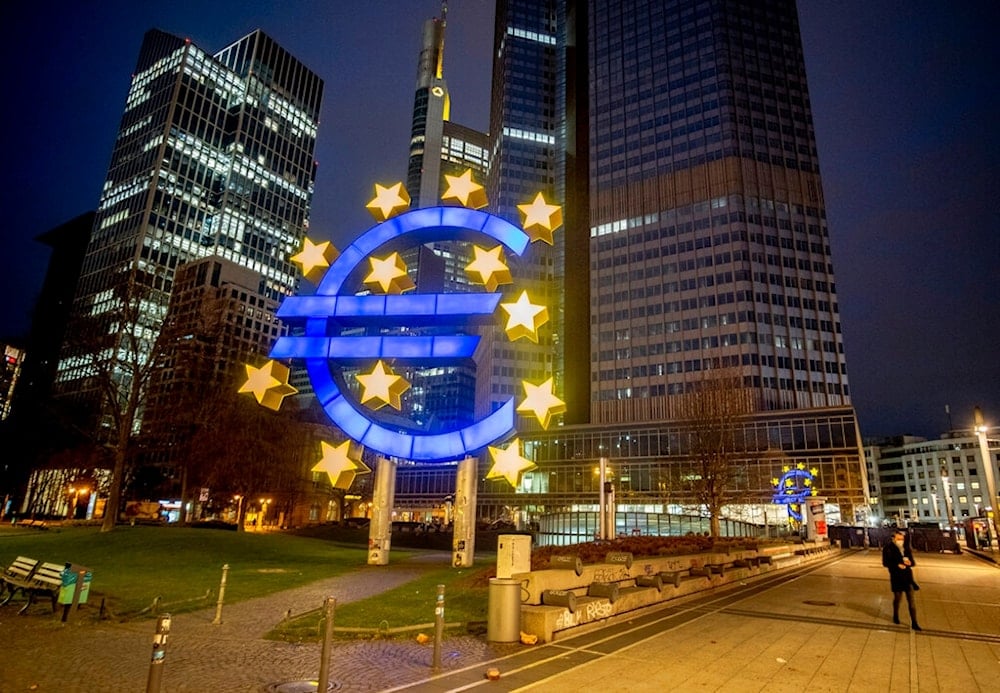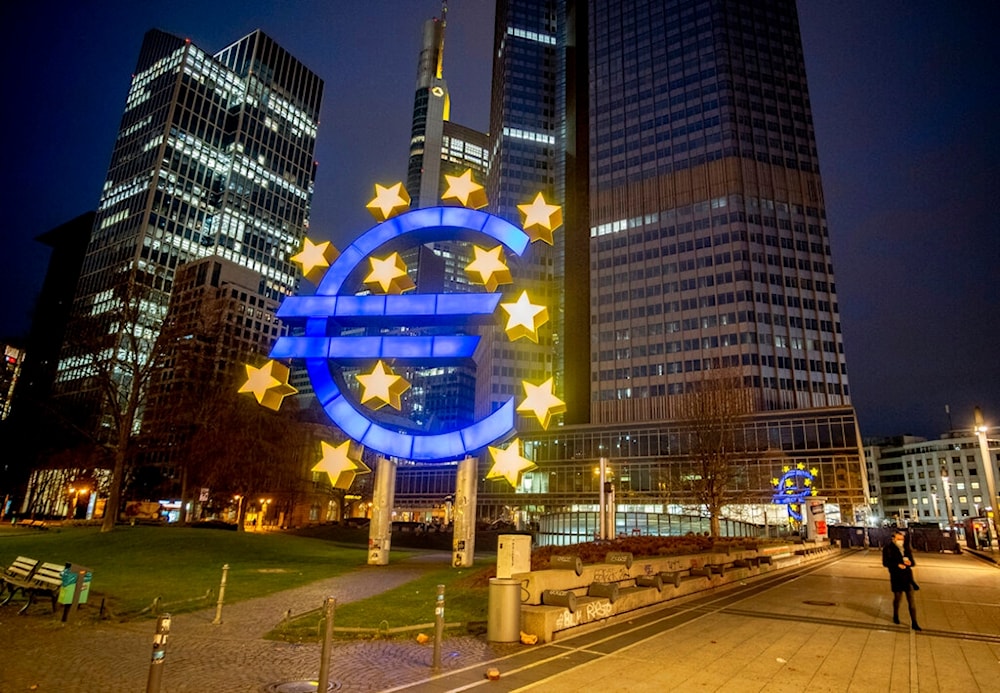According to reports, the Frankfurt-based regulator has written to affected lenders asking them to submit an “action plan” regarding their Russian operations by next month.
-

A man walks in front of the Euro sculpture in Frankfurt, Germany, March 11, 2021 (Associated Press)
The European Central Bank (ECB) is asking eurozone banks still operating in Russia to expedite their exits due to the risk of U.S. sanctions, the newspaper reported. financial times.
According to reports, the Frankfurt-based regulator has written to affected lenders asking them to submit an “action plan” for their Russian operations by next month.
Several EU banks include Austria's Raiffeisen Bank International (RBI), Italy's UniCredit, Dutch financial institution ING, Germany's Commerzbank and Deutsche Bank, Hungary's OTP Bank, Italy's Intesa Sanpaolo and Sweden's SEB. The bank continues to operate in Russia despite Western sanctions. Ukraine conflict.
Recently, UniCredit and RBI, which have been operating in Russia for more than 30 years, have come under the scrutiny of US financial authorities. These banks reportedly face the threat of being cut off from the US financial system.
Just last week, the RBI scrapped a deal to swap Russian assets for EU assets. The deal included assets held by sanctioned Russian billionaire Oleg Deripaska, but was halted under pressure from U.S. authorities.
Read more: EU banks unable to break with Russia despite sanctions: Bloomberg
There are concerns within EU regulators that U.S. intervention could expose Raiffeisen and other banks to further sanctions, risking significant damage to the EU's banking sector, according to people familiar with the ECB's position. is increasing.
“The ECB's response to the US intervention shows that Europe is highly dependent on the US,” an adviser to a bank operating in Russia told the paper. financial times. “We are more followers than leaders when it comes to judgments regarding European companies.”
FT sources said the ECB is tailoring its communications to each bank, with varying degrees of stringency depending on the progress of the withdrawal from Russia and the extent of its exposure there.
Despite geopolitical tensions, EU banks profit handsomely from their Russian operations. Together, these banks' profits in Russia last year exceeded 3 billion euros ($3.2 billion), a threefold increase in 2021. As a result, these banks paid around 800 million euros ($857 million) in Russian taxes, up from 200 million euros in 2021. , by financial times.
Read more: US threatens Austria with sanctions over economic ties with Russia
In October 2023, financial times reported that Russian authorities have banned foreign companies from extracting profits from the country in response to Western sanctions.
Kremlin spokesman Dmitry Peskov at the time declined to directly confirm the report. But he cited the ongoing “quasi-war” between the United States and the European Union against Russia and warned of what he called a “special regime” for Western companies leaving the country under pressure from their respective governments. Admitted.
When conflict erupted between Moscow and Kiev in 2022, prominent companies such as Apple, IKEA, Microsoft, IBM, Shell, McDonald's, Volkswagen, Porsche, Toyota, and H&M were among the first to suspend operations in Russia. Nevertheless, many foreign companies chose to remain, and some transferred to Russian ownership or rebranded.

